-(5)893e0a9d90156ede9dafff00004f030f.png?sfvrsn=e62b644c_0)
Internship Equity & Access Pledge
The internship process is a key factor to the certification path and access into the profession. Several barriers have been identified over the past several years regarding the internship process. Evaluation of materials, review of expectations, and alignment of needs surrounding internship have been key priorities for ACLP, especially they relate to goals of diversifying the membership and strengthening a vital component of entry into the professional community.
The ACLP Board has identified the following directives which together form the Pledge for Internship Equity and Access. These are upheld and supported by ACLP’s committees including Education & Training; Internship Accreditation Oversight; Academic Excellence Task Force; Internship Readiness Work Group; and the Child Life Certification Commission in recognition that it will take the entire community to advance our shared goal of creating a more diverse, equitable, and inclusive child life education and training experience for all.
As members of the child life community, we pledge to uphold the following:
In Preparation for Internship, Academic Programs Will Strive To...
- Offer a variety of content formats (i.e. case studies, guest speakers, interviews, role-play) that support various learning styles and abilities to provide opportunities for student application of theories and developmental psychology/science and health science knowledge.
- Focus assignments and discussions on child life assessment (application of theory/science),intervention planning (evidence-based), and evaluation (outcomes and reflection).
- Include Diversity, Equity, and Inclusion (DEI) learning topics, specifically topics of how racial bias,racial trauma, social determinants of health, multicultural theories, gender identity and sexual orientation, abilities, and family culture can influence the patient-provider relationship.
- Ensure curriculum reading lists include authors of color and appreciation for the contributions of various child development perspectives that exist amongst cultures.
- Ensure coursework includes assignments that prompt students to exercise reflective practice, recognize implicit bias and counter-transference, and how one can take action steps to address inequities and discrimination in healthcare and within the community.
Internship Programs Will Strive To...
- Use the Internship Readiness Common Application. Programs are strongly encouraged to refrain from requesting additional documents during the initial submission of the application (i.e. resume, cover letter, letters of recommendation, verification forms, course-in progress forms, official transcripts).
- Accept all application materials electronically to enhance accessibility, consistency, and environmental sustainability.
- Use the interview process to further assess a candidate's Internship Readiness Knowledge, Skills, and Abilities (KSAs).
- Accept paid and unpaid experiences within and outside of healthcare settings as relevant opportunities for applicants to develop and demonstrate the KSAs for internship readiness.
- Be transparent with internship requirements (i.e. affiliation, graduate degree).
- Refrain from charging applicants a fee for submitting an application.
- Offer virtual interviews at all interview stages of the application process.
- Ensure virtual interviews are weighted equally with in-person interviews when selecting candidates.
- Implement an interview process that is equitable and supports candidates of all abilities.
- Where possible, utilize inclusive marketing materials and develop recruitment strategies to increase candidate interest from historically excluded groups.
- When possible, create opportunities that increase accessibility for underrepresented groups and minimize the financial impact during the internship experience (e.g. scholarship fund).
Academic Institutions & Clinical Programs Who Have Signed the Pledge
The following academic institutions and clinical programs have signed the Internship Equity & Access Pledge.

